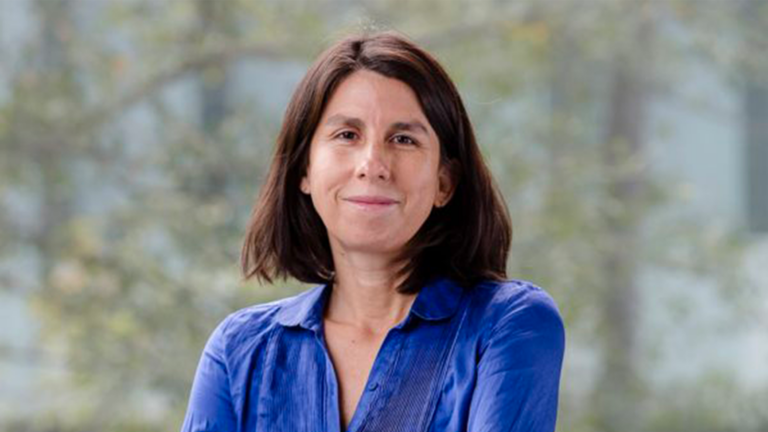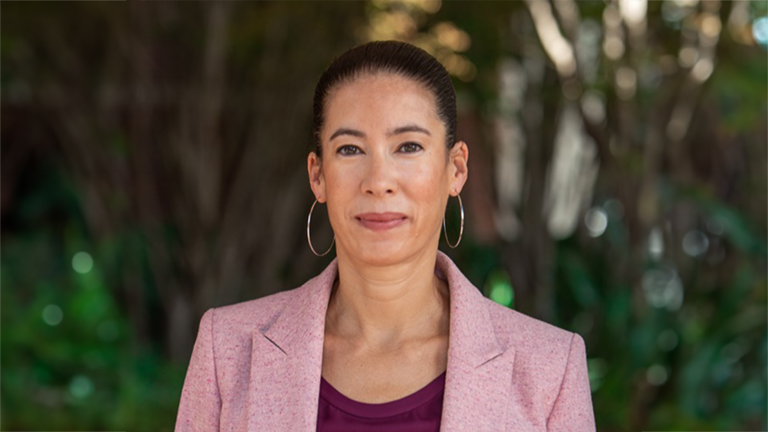CESR Seminar and Brown Bag Series
CESR Seminar & Brown Bag Series 2024
The CESR Seminar & Brown Bag Series will resume Monday, August 26, 2024 and conclude Monday, December 16, 2024.
Mondays
12pm – 1pm
VPD 203 and Zoom
Add series to your calendar
Frauke Kreuter | University of Maryland
Monday, September 9, 2024
12pm – 1pm
VPD 203 and Zoom
Add series to your calendar
Abstract: This presentation scrutinizes the transformative potential of Large Language Models (LLMs) in survey research, focusing on three critical areas: questionnaire design, synthetic data creation, and the role of LLMs as qualitative interviewers. In the domain of questionnaire design, the lecture delves into if and how LLMs can construct contextually accurate and highly effective survey items. However, there are valid concerns about the model’s understanding and potential biases, which we will critically evaluate. She also discusses LLMs’ ability to fabricate synthetic data, preserving core statistical properties whilst ensuring privacy. Here too, the ethical implications and the potential for misuse of this capability pose challenges that need to be addressed. Lastly, the lecture explores how LLMs, with their human-like conversational ability, can act as qualitative interviewers, allowing in-depth information gathering at scale. Yet, questions about their ability to fully capture the complexity and subtleties of human interaction and response also remain. The underlying theme of this talk is the question on how research in this space should be structured.
Bio: Professor Frauke Kreuter holds the Chair of Statistics and Data Science at LMU Munich, Germany and at the University of Maryland, USA, she is Co-Director of the Social Data Science Center (SoDa) and faculty member in the Joint Program in Survey Methodology (JPSM). Currently she serves as president for the American Association for Public Opinion Research. In addition to her academic work, Professor Kreuter is Co-Founder of the Coleridge Initiative, whose goal is to accelerate data-driven research and policy around human beings and their interactions for program management, policy development, and scholarly purposes by enabling efficient, effective, and secure access to sensitive data about society and the economy.
Ron Hays | University of California, Los Angeles
Monday, September 16, 2024
12pm – 1pm
VPD 203 and Zoom
Add series to your calendar
Bio: Ron D. Hays is a UCLA Distinguished Professor of Medicine and an affiliated adjunct researcher at the RAND Corporation with a research focus on patient-reported outcomes. He has been a principal investigator for the AHRQ-funded Consumer Assessment of Healthcare Providers and Systems (CAHPS®) project at RAND since its beginning in 1995. Hays has been acknowledged as one of the most highly cited and influential scientific minds by Thomson Reuters/Clarivate Analytics. He has published 40 book chapters and about 690 peer-reviewed journal articles.
Suhani Jalota | Stanford University
Monday, September 23, 2024
12pm – 1pm
VPD 203 and Zoom
Add series to your calendar
Abstract: In many developing countries, married women face significant practical barriers to entering the workforce, particularly for jobs outside the home. These barriers include safety concerns, travel costs, and housework responsibilities. We design an experiment that lowers these barriers by establishing new local offices that are within a five-minute walk from home, exclusively for women, and permit children. We assigned 3,200 unemployed wives in Mumbai to the same jobs (part-time, smartphone-based digital work), either from home or a local office, and cross-randomized them to one of three monthly wage levels (ranging widely). About 27% of women take up local office jobs, suggesting that low-practical-barrier jobs can get more than a quarter of unemployed women to enter the workforce. However, shifting the job location to home is even more effective than local offices or higher wages. Specifically, 56% of women took up the same jobs when offered from home. In contrast, a five-fold increase in wages for local office jobs only increased uptake by 25%. A parallel experiment with husbands reveals that the higher take-up from home is gender-specific, as husbands were indifferent to job location for themselves. In a follow-up mechanism experiment, we find that women are unable to leave their homes even for a two-minute check-in at an office. This inability explains about half of the difference in job take-up between home-based and local office jobs. Gender norms are important in this context, implying that home-based and local jobs may be the most immediate path to increasing women’s participation.
Bio: Suhani Jalota is a Hoover Fellow at the Hoover Institution at Stanford University. In her research, Jalota uses field experiments to explore the intersection between women’s employment, health, and agency and the enabling role of technology. In her doctoral dissertation, she analyses constraints to women’s paid work and uses data from digital jobs performed at home in India to study the increase in female labor-force participation. For the last fourteen years, Jalota has been working in urban slum areas and rural communities on projects ranging from adolescent girl health, water, and sanitation to social protection policies in South Africa, Thailand, and several cities in India. She is also the founder of the Myna Mahila Foundation, a research-driven social enterprise with the mission to increase women’s agency and decision-making power to make them more confident, financially independent, and healthy. Founded in 2015, Myna Mahila now has a reach of 1.5 million women and a team of seventy in India. Jalota was a Knight-Hennessy Scholar at Stanford University, where she received her PhD and MBA. She has a BS in economics and global health with the highest distinction from Duke University.
Morteza Dehghani | USC Dornsife College of Letters, Arts and Sciences
Monday, September 30, 2024
12pm – 1pm
VPD 203 and Zoom
Add series to your calendar
Abstract: Acts of hate have been used to silence, terrorize, and erase marginalized social groups throughout history. In this work, we investigate the motivations underlying extreme behavioral expressions of prejudice (EBEPs), proposing that acts of hate may often be best understood as morally motivated behaviors grounded in people’s moral values and perceptions of moral violations. First, we provide support for the concomitant relationship between morality and hate in language from a diverse array of contexts, including the use of hateful language in propaganda to inspire genocide, slurs, and social media data. Next, we demonstrate that moral values oriented around group preservation are predictive of the county-level prevalence of hate groups and associated with the belief that EBEPs against marginalized groups are justified. Additional analyses suggest that the association between group-based moral values and EBEPs against outgroups can be partly explained by the belief that these groups have done something morally wrong. In another line of work, we demonstrate that homogeneity in moral concerns results in increased levels of radical intentions. Overall, our research highlights the complex interplay of morality and hate, suggesting a potential avenue for intervention when hate is perceived as virtuous.
Bio: Morteza is a Professor of Psychology, Computer Science, and the Brain and Creativity Institute (BCI) at the University of Southern California, where he directs the Morality and Language Lab. His work combines correlational studies of psychological processes in social discourse artifacts with behavioral experimentation. He studies the relationship between human values and environmental and psychological factors to predict real-world behaviors. Morteza is particularly interested in how extreme moral worldviews can lead to prejudice, violence, and hate. Morteza’s work has been recognized through several awards, including the NSF CAREER Award, the Young Investigator Fellowship from the Air Force Office of Scientific Research, and the Google Award for Inclusion Research. He received his BS and MS from UCLA and his PhD from Northwestern University.
Helen Meier | University of Michigan
Monday, October 7, 2024
12pm – 1pm
VPD 203 and Zoom
Add series to your calendar
Abstract: Racism is considered a fundamental cause of health inequities, but research on structural racism and health has been limited by lack of data. Helen Meier will discuss her work in historic and modern-day lending discrimination, one aspect of structural racism, including new data products and applications in population health research.
Bio: Helen C.S. Meier is an Assistant Research Professor at the University of Michigan’s Institute for Social Research. She examines the socioenvironmental determinants of health and health inequities across the life course. Her overall goal is to understand how social vulnerabilities become biological vulnerabilities resulting in health inequities.
So Young Choe | University of California, Berkeley
Monday, October 14, 2024
12pm – 1pm
VPD 203 and Zoom
Add series to your calendar
Abstract: Are Asians really intrusive? Do Asian adolescents feel that their parents are intrusive? I measured what Korean adolescents believe to be intrusive parenting, guided by the Two Facet Model of Parental Psychological Control (Choe et al., 2023) that stipulates intrusiveness and emotional manipulation as two core facets of parental psychological control. Please come and see how I measured intrusiveness and emotional manipulation separately and if or how intrusiveness functioned differently from emotional manipulation. The participating adolescents came from a poor area and a disadvantaged academic environment in Seoul, South Korea.
Bio: Dr. So Young Choe received her doctorate in Psychology at the University of Southern California where she started studying harmful parenting called parental psychological control. Parental psychological control (PPC) refers to a set of intrusive parenting techniques that emotionally manipulate children to obey parents (Choe & Read, 2019). Then she trained in the NIAAA T32 program at the University of California, Berkeley where she connected PPC to adolescents’ alcohol use. Dr. Choe is awarded a K99&R00 grant by the Eunice Kennedy Shriver National Institute of Child Health and Human Development.
Pietro Biroli | University of Bologna
Monday, October 21, 2024
12pm – 1pm
VPD 203 and Zoom
Add series to your calendar
Abstract: This paper concerns the potential uses of genetic data in economics, with a focus on estimating the interplay between genes (nature) and environments (nurture). We discuss — in the context of an empirical illustration of the moderating effect of school-starting age on one’s genetic predisposition towards educational attainment — how economists can benefit from incorporating genetic data into their analyses, even when they do not have a direct interest in estimating genetic effects. We argue that gene–environment (G x E) studies can be instrumental for (i) assessing treatment effect heterogeneity, (ii) testing theoretical predictions, and (iii) uncovering mechanisms, thereby improving understanding of how (policy) interventions affect population subgroups. Empirically, we find that being old-for-grade and having a higher genetic propensity for education benefits children on assessment tests as they progress through school, but more so for those with a lower genetic propensity for education.
Bio: Pietro obtained his PhD in economics from the University of Chicago, and after that was UBS Foundation Assistant Professor of Applied Economics at the University of Zurich. He is currently a research affiliate at IZA, fRDB, HCEO, CHILD, CEPR, CESifo, and the Jacobs Center for Productive Youth Development at UZH.His research focuses on the early origins and life cycle evolution of health and human capital. He is interested in Health Economics, Applied Econometrics, and Social Science Genetics.
Sarah Hayford | The Ohio State University
Monday, October 28, 2024
12pm – 1pm
VPD 203 and Zoom
Add series to your calendar
Abstract: Flows of intergenerational support shift over the life course, with children requiring support from parents when young and (in many contexts) expected to provide for parents as they age. During the intermediate stages of the family life course, as children are gradually transitioning to adulthood and parents are aging, patterns of exchange are complex. It is important to understand the extent and nature of these exchanges, especially in low-income settings with weak social safety nets where people at all ages depend on family for support. This paper analyzes exchanges of financial, material, instrumental, and emotional support between mid-life women and their adolescent and young adult children in a low-income, high-fertility context. We draw on newly available survey data from a longitudinal study of women in rural southern Mozambique. Results show complex and varied patterns of exchange across different domains. Mothers both provide and receive support, with the balance of support varying across domains and conditioned by both maternal and child characteristics. We discuss these results in the context of changing expectations for the transition to adulthood in this setting.
Bio: Sarah Hayford is Professor of Sociology and Director of the Institute for Population Research at Ohio State University. She studies childbearing, family formation, and reproductive health, primarily in the United States and sub-Saharan Africa. She is interested in how people make plans about these behaviors and who is able to carry out their plans. Recent and current research topics include the determinants of fertility intentions and desires in the United States, policy impacts on reproductive health access and outcomes in Ohio, the transition to adulthood in low- and middle-income countries, and how reproductive trajectories shape women’s long-term health and well-being in rural Mozambique. Hayford’s research has been funded by NICHD, NIA, and private foundations.
Darin Christensen | University of California, Los Angeles
Monday, November 4, 2024
12pm – 1pm
VPD 203 and Zoom
Add series to your calendar
Abstract: We experimentally evaluate whether an interest-based negotiation (IBN) training for community leaders in Liberia improves their ability to strike beneficial deals related to their land and forests. We use environmental assessments, lab-in-the-field, and surveys and find that trainees are 27% more likely to reach a beneficial agreement, and it raises the total surplus earned by $2.74 USD, which is a 42% increase. Our exploration of mechanisms indicates that the training increases trainees’ capacity to identify valuable deals, but does not improve their appraisal of their outside option. We find a reduction (0.27 standard deviations) in the exploitation of communal forestland in treated communities.
Bio: Darin Christensen is an Associate Professor of Public Policy and Political Science at UCLA. His research focuses on the political economy of conflict and development, examining the causes and consequences of armed and social conflict, as well as policies and institutions that promote economic development and the provision of public goods. Darin holds a Ph.D. in Political Science and M.A. in Economics from Stanford University.
David Neumark | University of California, Irvine
Monday, November 18, 2024
12pm – 1pm
VPD 203 and Zoom
Add series to your calendar
Abstract: We provide a comprehensive analysis of the effects of minimum wages on blacks, and on the relative impacts on blacks vs. whites. We study not only teenagers – the focus of much of the minimum wage-employment literature – but also other low-skill groups. We focus primarily on employment, which has been the prime concern with the minimum wage research literature. We find evidence that job loss effects from higher minimum wages are much more evident for blacks, and in contrast not very detectable for whites. We supplement this work with additional analysis that distinguishes between effects of an individual’s race and the race composition of where they live. The extensive residential segregation by race in the United States raises the question of whether the more adverse effects of minimum wages on blacks are attributable to more adverse effects on black individuals, or more adverse effects on neighborhoods with large black populations. We find relatively little evidence of heterogeneity in effects across areas defined by the share black among residents.
Bio: David Neumark is Distinguished Professor of Economics and Co-Director of the Center for Population, Inequality, and Policy at UCI. He has previously held positions at the Federal Reserve Board, the University of Pennsylvania, Michigan State University, and the Public Policy Institute of California.
He has made research contributions in numerous areas of labor economics that intersect with important public policy issues. Neumark’s research on labor market discrimination has opened up new methods of measuring discrimination. His early work on wage equation decompositions led to efforts to better tie these measurement methods to underlying models of discrimination. Later work developed methods of using matched employer-employee data to test for discrimination. And his recent methodological contribution on audit and correspondence studies is being rapidly adopted in new and ongoing studies.
Neumark was one of the original contributors to the “new minimum wage research,” helping to pioneer the use of state-level minimum wage variation to estimate minimum wage effects. His subsequent work moved well beyond the debate over employment effects, to research on the effects of minimum wages on the income distribution, long-run effects of minimum wages on human capital and earnings, and complementarities between minimum wages and the EITC. In related work, he was the first to assemble data and explore methods to study the effects of city living wage laws, as well as contributing to understanding the political economy of these laws.
Neumark has authored many studies on age discrimination and the economics of aging. Recently, he has studied how stronger age discrimination laws complement policy reforms intended to increase labor supply of older workers, conducted a large-scale field experiment testing for age discrimination, and developed methods to test for age stereotypes in job ads and explore how these influence job search of older workers.
Pamela Jervis | University of Chile
Monday, December 2, 2024
12pm – 1pm
VPD 203 and Zoom
Add series to your calendar
Abstract: We examine nationwide causal effects of school choice on student’s outcomes and trajectories by exploiting the randomness of the allocation Deferred Acceptance Algorithm of the centralized school allocation system to fill the vacancies in each Bicentennial school that is over subscripted and using rich administrative and longitudinal data. This generates two groups (treatment and control) which are equal except by the School Admission System (SAS) result. This allow us to come close to an idealized social random experiment. The Deferred Acceptance Algorithm generates a student-school allocation considering student preferences and school capacities that assigns each student to the highest plausible preference conditional on special priorities and vacancies at schools. Prelaminar results find both positive and negative significant impacts depending on the academic outcome evaluated when estimating the impact of being selected at a first-choice Bicentennial school, with differing results depending on whether the education is Regular or Vocational. Meanwhile, the impact of enrolling in those first-choice assigned Bicentennial schools shows in average non-significant academic results.
Bio: Pamela Jervis is an Assistant Professor of Economics at the University of Chile. Her primary fields are household behaviour, human capital accumulation and policy evaluation. Her research focuses on designing, implementing and evaluating mainly large-scale randomized field studies to test policies, programs and interventions focused on parental and/or teachers’ behavior change to improve lack of stimulation and children’s outcomes, and to reduce socioeconomic gaps primarily in low-and middle-income countries.
Grigory Franguridi | USC CESR
Monday, December 9, 2024
12pm – 1pm
VPD 203 and Zoom
Add series to your calendar
Abstract: It has long been established that if a panel dataset suffers from attrition, auxiliary (refreshment) sampling may restore full identification under semiparametric assumptions on the attrition process that are significantly weaker than selection on observables. Despite their generality, these identification strategies have not gained wide applicability in empirical research due to the complexity of induced estimation and inference procedures. We show that this is nevertheless possible and suggest a computationally attractive two-step estimator employing the iterative proportional fitting (raking) algorithm. We derive the influence function of this estimator and show that it depends on a nonparametric additive regression, which can be computed efficiently using the well-studied smooth backfitting algorithm. This further leads to a Neyman-orthogonal (debiased) estimator and a procedure for asymptotic inference. Finally, we demonstrate the satisfactory performance of our methodology in simulations and provide an empirical illustration using the Understanding America Study panel.
Bio: Grigory is a CESR economist with research interests in econometric theory and survey methodology.
Sarah Townsend | USC Marshall School of Business
Monday, December 16, 2024
12pm – 1pm
VPD 203 and Zoom
Add series to your calendar
Abstract: Research investigating the impact of highlighting versus minimizing gender differences has shown that it can affect women’s agency, potentially increasing gender disparities. Specifically, when women read a difference-awareness message that emphasizes gender differences, they show reduced agency (i.e., assertiveness, confidence, and advocacy) compared to when they read a difference-minimization message that downplays gender differences. Our work challenges the idea that highlighting gender differences is inherently harmful. We propose that a difference-education message that acknowledges these differences while providing a contextual theory of their origin (i.e., differences come from participating in and adapting to diverse sociocultural contexts) will not produce the same detrimental effects. Across three empirical studies, we test the impact of difference-education compared to difference-awareness. We predict and find that, relative to difference-awareness, messages of difference-education increase women’s agency in general and their likelihood of confronting gender biases and advocating for equality in the workplace. Additionally, we demonstrate that, compared with difference-awareness, difference-education leads women to anticipate greater levels of fit and empowerment in the workplace. We also find that difference-education and difference-minimization messages show similar effects across our outcomes. This work suggests that it is not necessary to downplay gender differences, which may be a challenging task. Rather, a contextual understanding of gender differences can serve as an effective strategy in addressing gender disparities in professional settings.
Bio: Sarah S. M. Townsend is an Associate Professor of Management and Organization and Vice Dean for Diversity, Equity, and Inclusion at the Marshall School of Business at USC. Her research focuses on when individuals’ cultural norms collide with the dominant cultural norms of organizations. She examines how these “cultural divides” are often a hidden source of inequality, but how they can be used to lessen opportunity gaps and fuel greater cross-group understanding.
Social-Science Genetics Seminars
Daniel S. Hamermesh | University of Texas at Austin
Thursday, September 5, 2024
9am – 10am
Zoom
CESR email will be sent with Zoom info
Nicolau Martin-Bassols | University of Bologna
Thursday, October 3
9am – 10am US PT (6pm Eurpopean Central Time)
Zoom link emailed to guests
Bio: Nicolau Martin-Bassols is a Post-doctoral Research Fellow at the Department of Economics at the University of Bologna. He obtained his PhD from Monash University’s Centre of Health Economics in 2022. He specializes in applied microeconomics and micro-econometrics, with a focus on health, labor economics, and social genomics. His research explores the impact of genetics, familial investments, and policy interventions on the construction of health and human capital, as well as economic disparities.
Laurel Raffington | Max Planck Institute for Human Development
Date: Thursday, November 7, 2024
Time: 9:00 AM – 10:00 AM (US/Pacific Time)
Zoom: Link emailed to guests
Bio: Dr. Laurel Raffington is a German-American developmental psychologist. She leads the independent Max Planck Research Group Biosocial – Biology, Social Disparities, and Development at the Max Planck Institute for Human Development in Berlin, Germany. This group consists of an interdisciplinary team of psychologists, gerontologists, sociologists, and biologists interested in gene-environment interplay and the unfolding of human development in socially stratified environments. Laurel has lived in several countries, which has highlighted the importance of culture and social systems in development, and has two children, whom provide a daily reminder of the importance of genetics in behavior.
Michel Boivin | Laval University
Tuesday, December 3
9am-10am PST
Zoom
Check your email invitation for Zoom link
*Cohosted with UCLA Social Science Genetic Association Consortium (SSGAC)
Qiongshi Lu | University of Wisonsin-Madison
Thursday, December 5
9am-10am PST
Zoom
Check your email invitation for Zoom link
Conferences
AASRO 2024
CESR and USC is hosting AASRO 2024!
Dates: September 25-27, 2024 (Tuesday – Thursday)
Venue: University of Southern California, MCB101



















